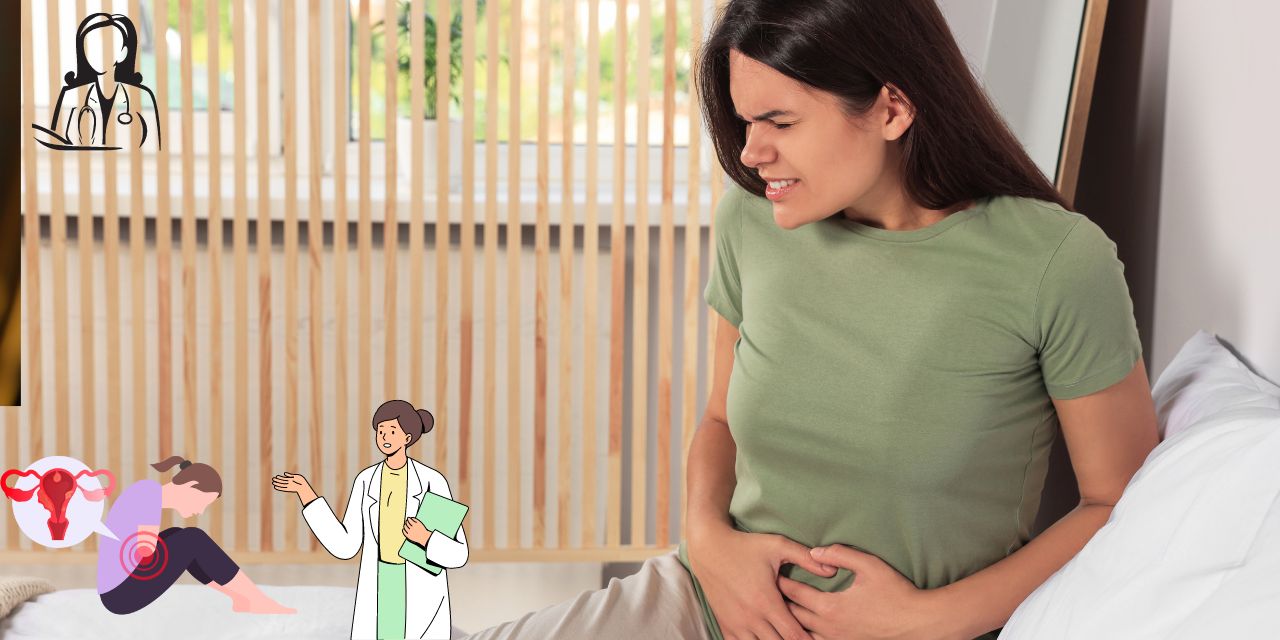Chronic pelvic pain is a condition that affects a significant number of individuals, often causing considerable discomfort and impacting daily life. Understanding the underlying causes, recognizing the symptoms, and exploring available treatment options can help individuals manage this condition effectively and improve their quality of life.
What is Chronic Pelvic Pain?
Chronic pelvic pain (CPP) is defined as pain in the lower abdomen or pelvis that lasts for six months or longer. Unlike acute pain, which serves as a warning sign of injury or illness, Persistent Pelvic Pain persists over time and can be caused by various underlying conditions. It may be constant or intermittent and can range from mild to severe.
Causes of Persistent Pelvic Pain
The causes of Persistent Pelvic Pain can be complex and multifaceted. Some common causes include:
- Endometriosis: A condition where tissue similar to the lining of the uterus grows outside the uterus, leading to pain, especially during menstruation.
- Pelvic Inflammatory Disease (PID): An infection of the female reproductive organs that can result from sexually transmitted infections (STIs) or other bacterial infections.
- Irritable Bowel Syndrome (IBS): A gastrointestinal disorder that can cause abdominal pain, bloating, and changes in bowel habits.
- Interstitial Cystitis: A chronic bladder condition characterized by pelvic pain, frequent urination, and discomfort.
- Uterine Fibroids: Non-cancerous growths in the uterus that can cause pelvic pain, heavy menstrual bleeding, and pressure.
- Chronic Prostatitis: In men, this condition involves inflammation of the prostate gland and can result in pelvic pain and discomfort.
- Musculoskeletal Issues: Problems with the pelvic floor muscles or ligaments can also contribute to Persistent Pelvic Pain.
Symptoms of Persistent Pelvic Pain
The symptoms of Persistent Pelvic Pain can vary depending on the underlying cause but generally include:
- Persistent or intermittent pain in the lower abdomen or pelvis
- Pain that may radiate to the lower back, thighs, or genital area
- Pain during or after sexual intercourse
- Pain during menstruation or ovulation
- Urinary symptoms, such as frequent urination or painful urination
- Digestive issues, such as bloating, constipation, or diarrhoea
Diagnosis of Persistent Pelvic Pain
Accurate diagnosis of Persistent Pelvic Pain involves a comprehensive evaluation by a healthcare professional. The diagnostic process may include:
- Medical History and Physical Examination: Discussing symptoms, medical history, and undergoing a physical examination.
- Imaging Tests: Ultrasound, MRI, or CT scans may be used to visualize the pelvic organs and detect abnormalities.
- Laparoscopy: A minimally invasive procedure used to directly examine the pelvic cavity and identify conditions such as endometriosis.
- Laboratory Tests: Blood tests, urine tests, or cultures may be performed to rule out infections or other underlying conditions.
Treatment Options for Persistent Pelvic Pain
Treatment for Persistent Pelvic Pain depends on the underlying cause and the severity of symptoms. Common treatment options include:
- Medications: Pain relievers, anti-inflammatory drugs, or hormonal treatments may be prescribed to manage pain and inflammation.
- Physical Therapy: Specialised exercises and techniques can help strengthen the pelvic floor muscles and alleviate pain.
- Lifestyle Changes: Dietary adjustments, stress management, and regular exercise can contribute to overall well-being and pain reduction.
- Surgical Interventions: In cases where other treatments are ineffective, surgical procedures may be necessary to address conditions such as endometriosis or uterine fibroids.
- Psychological Support: Counselling or therapy can help individuals cope with the emotional and psychological aspects of Persistent Pelvic Pain.
- Alternative Therapies: Acupuncture, massage therapy, and other complementary approaches may provide relief for some individuals.
Conclusion
If you are experiencing chronic pelvic pain, it is essential to seek professional medical advice to determine the underlying cause and receive appropriate treatment. Dr. Kamla Kaushal, one of the best lady doctors in Chandigarh, offers expert care and personalised treatment plans for managing Persistent Pelvic Pain. At Trinity Hospital Chandigarh, Dr. Kaushal and her team are dedicated to providing compassionate and effective care to help you find relief and improve your quality of life. For more information or to schedule a consultation, contact Trinity Hospital Chandigarh today. To get more information please contact us on : +918288093620












